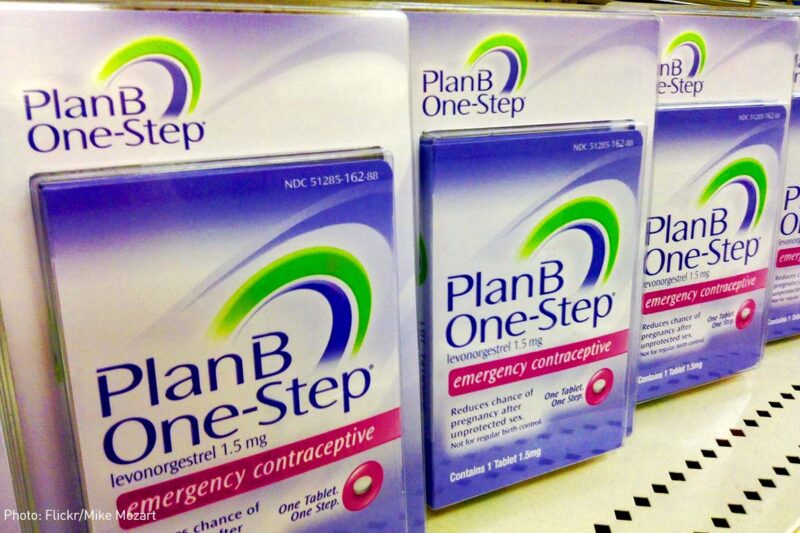Native American Women Deserve the Same Reproductive Health Care as Any Other Woman, No Questions Asked


Imagine being blocked completely when trying to access the same emergency contraception that every other woman can get by walking into their neighborhood pharmacy. That’s what Native American women have faced for years.
Last week, after years of advocacy by the Native American Women’s Health Education Resource Center, Native American women, the ACLU, Amnesty International, and numerous other reproductive justice partners, Indian Health Services finally updated its policy to require its facilities provide Plan B emergency contraception, the morning after pill, according to FDA guidelines. In other words, Native American women can finally have access to EC on the same terms as anyone else living in the United States.
It has been a long journey with many challenges for Native American women to get equal access to Plan B. We can no longer stand back and allow the federal government to deny us equal access to the law; it is a human rights issue when it comes to denial of health care that is legal for everyone else except Native Americans.
More than two years ago, a federal court ordered the FDA to make Plan B emergency contraception (and its generic counterparts) available over the counter to people of all ages. It’s very simple: no physician visit or prescription required. For anyone. Ever.
The Native American Women’s Health Education Resource Center recently released a survey showing the most of the IHS units did not provide Plan B in accordance with the federal law. Sen. Barbara Boxer’s office later did their own survey and also found that many IHS units were not complying with this very clear rule. Some facilities imposed age restrictions, while others said that they didn’t offer Plan B at all. Of course, these findings came as no surprise to those of us who live in these communities and rely on Indian Health Services for health care: We’ve been documenting and publicizing the failure of Indian Health Services to make emergency contraception accessible for years. We don’t understand why they can’t extend the same access to healthcare to Native American women that we do to all others. It’s frankly unacceptable.
It would obviously be illegal for a commercial pharmacy to treat Native American customers differently than other customers, just because they are Native American. But that is exactly what was happening in federally operated health care facilities.
Plan B can safely prevent pregnancy after contraceptive failure, unprotected sex, or sexual assault. But EC is most effective the sooner it is taken. Given the rural locations of many reservation communities, if EC is unavailable at the IHS facility, the next closest commercial pharmacy may be hundreds of miles away and transportation costs may be insurmountable. This makes timely access to EC difficult, if not impossible for too many women.
Even in those IHS facilities where EC was “available,” many Native American women were forced to go to a clinic, wait — sometimes all day — to see a health care provider, and then wait even longer for approval for an order to be sent to the IHS pharmacy for EC. That is, if the health-care provider would even approve an order for EC. We heard many stories of providers who withhold EC from women for religious reasons or because they believed, incorrectly, that EC can cause an abortion, even though EC should be available over the counter and on demand.
Finally, we have a written policy that states unequivocally that all IHS facilities must make Plan B available to anyone who needs it — without a prescription, pregnancy test, provider visit, age verification, or any other unnecessary and unjustified obstacles. Importantly, this policy also requires that every patient receive unbiased and medically accurate information about EC, and that no woman is ever turned away and prevented from getting the care she needs because of another person’s religious beliefs.
A woman who gets her health care from IHS has the same right as anyone else to access the medication she needs to make her own decisions about whether and when to start a family. We are pleased to see the federal government finally living up to its legal obligations to Native American women. But a new policy is just the start: We will be watching to make sure this is not just another empty promise, and that Native American women will be able to get the health care to which they are entitled and they deserve.

